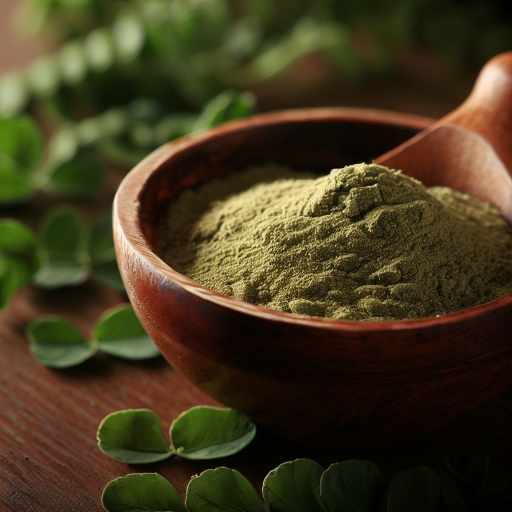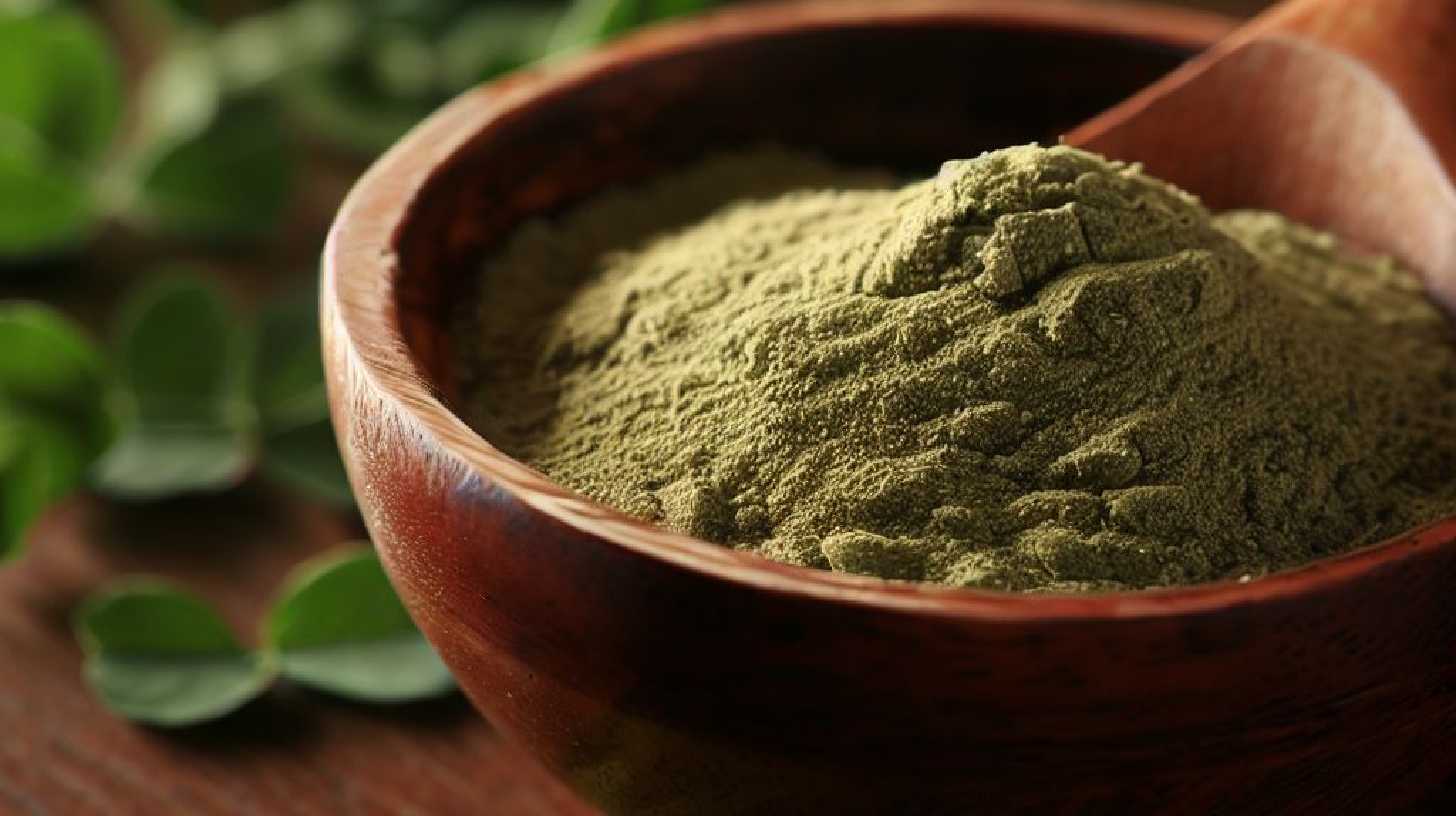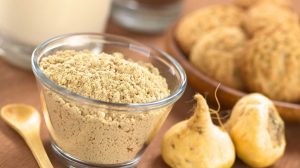Table of Contents
Introduction
In recent years, the popularity of Moringa has skyrocketed as people uncover its numerous potential health benefits. Moringa, also known as Moringa oleifera, is a superfood that has been used for centuries to promote wellness and combat various ailments.
Moringa is a plant native to Asia and Africa, known for its nutrient-rich leaves, which are often used to make moringa powder and extract. The plant has been hailed for its powerful antioxidants, anti-inflammatory properties, potential anti-cancer effects, and so much more.
In this article, we will dive deeper into the incredible benefits of Moringa and why it has become a popular choice for individuals seeking a natural way to enhance their health.
Key Takeaways:
- Moringa is a superfood that has numerous potential health benefits.
- Moringa oleifera is native to Asia and Africa.
- The plant is known for its nutrient-rich leaves.
- Moringa contains powerful antioxidants and anti-inflammatory properties.
- It may have potential anti-cancer effects.
Understanding Moringa: What is it?
Before we delve into the impressive benefits of Moringa, let’s get to know this powerful superfood better. Moringa, also known as Moringa oleifera, is a plant native to parts of Asia and Africa. It is well-known for its nutrient-rich leaves, which are often dried and ground into a fine powder to make moringa leaf powder. Moringa powder is a popular supplement due to its potential health benefits. In addition to the leaves, Moringa also produces seeds, which are used for their health properties.
Moringa, also referred to as the “miracle tree,” is an excellent source of essential vitamins and minerals, including calcium and vitamin C. In fact, it contains more vitamin C than oranges and more calcium than milk. Its leaves are high in antioxidants and anti-inflammatory compounds, making it a valuable addition to any diet.
Moringa extract is also a popular product, and it can be made from the leaves, seeds, or flowers of the plant. This extract is often used in skin care products due to its antioxidant properties and ability to protect against environmental stressors.
| Common forms of Moringa: | Description: |
|---|---|
| Moringa leaf powder | Finely ground powder made from dried moringa leaves |
| Moringa extract | Concentrated liquid made from moringa leaves, seeds, or flowers |
| Moringa seed oil | Oil extracted from moringa seeds |
The moringa tree is a fast-growing, drought-resistant plant that is easy to cultivate. Its versatility and potential health benefits have made it a popular choice in the health and wellness community.
Use of Moringa in Traditional Medicine

Ever wondered why Moringa is often dubbed the “miracle tree”? Well, beyond its superfood status in modern times, Moringa has deep roots (pun intended!) in traditional medicine. For centuries, different cultures have tapped into the healing prowess of Moringa to treat a myriad of health issues.
From its leaves to its bark, almost every part of the Moringa tree has been used in traditional remedies:
- Leaves: Believed to treat malnutrition, boost energy, and enhance wound healing.
- Seeds: Often used to purify water and as an anti-inflammatory agent.
- Bark: Traditionally used for its digestive and circulatory benefits.
- Flowers: Consumed as a tea to combat colds and improve muscle relaxation.
So, why is this important? Well, understanding it’s historical use not only adds depth to its modern-day popularity but also underscores its versatility. It’s like having a Swiss army knife in the world of natural remedies! And who knows? Maybe the next time you’re feeling a bit under the weather, you might just reach for some Moringa tea instead of that over-the-counter cold medicine. After all, if it’s been working for centuries, there must be something to it, right? 😉
Benefits of Moringa
Packed with Nutrients: Vitamins and Minerals in Moringa
Moringa is considered a superfood because it is packed with all the essential vitamins and minerals needed for good health. This nutrient-dense plant is high in vitamins A, B1, B2, B3, B6, C, and E, as well as minerals such as calcium, iron, magnesium, and potassium.
Moringa has seven times more vitamin C than oranges and four times more calcium than milk, making it a great addition to a healthy diet. Its high levels of vitamin C help to boost the immune system, while calcium is essential for strong bones and teeth.
Moringa is one of the most nutrient-dense foods on the planet
In fact, the leaves of the moringa plant have been used for centuries to treat malnutrition in developing countries, due to their high nutritional content. Just one serving of moringa is enough to provide your body with all the vitamins and minerals it needs to function at its best.
Essential Amino Acids: Moringa’s Protein Powerhouse
While we’ve touched on the vitamins and minerals packed in Moringa, let’s not forget about its impressive protein content! Moringa is a rare plant source that offers all nine essential amino acids. These amino acids are termed “essential” because our bodies can’t produce them on their own, meaning we must obtain them from our diet.
Here’s a quick breakdown of the essential amino acids found in Moringa and their benefits:
| Essential Amino Acids | Benefits |
|---|---|
| Histidine | Vital for growth and tissue repair. |
| Isoleucine | Aids in muscle metabolism and energy production. |
| Leucine | Stimulates muscle strength and growth. |
| Lysine | Important for bone health and hormone production. |
| Methionine | Assists in metabolism and detoxification. |
| Phenylalanine | Plays a key role in the production of neurotransmitters. |
| Threonine | Supports immune function and fat metabolism. |
| Tryptophan | Precursor to serotonin, influencing mood and sleep. |
| Valine | Helps stimulate muscle growth and regeneration. |
The presence of these essential amino acids makes Moringa an excellent protein source, especially for vegetarians and vegans. So, the next time someone asks you about plant-based protein sources, you’ve got a stellar answer up your sleeve!
Powerful Antioxidants: Moringa’s Defense Against Free Radicals
Free radicals are unstable molecules that can damage our cells and contribute to various health issues. Fortunately, It has powerful antioxidants that can neutralize free radicals, protecting our cells from oxidative stress.
The main antioxidants found in Moringa are quercetin and chlorogenic acid. Quercetin is a flavonoid that has been shown to have anti-inflammatory and immune-boosting properties. Chlorogenic acid, on the other hand, has been linked to improved heart health and blood sugar control.
By reducing oxidative stress and inflammation in the body, Moringa’s antioxidants can support overall health and lower the risk of chronic diseases. Incorporating Moringa into your diet may help improve your body’s defense against free radicals and promote optimal well-being.
Blood Sugar Control: How Moringa May Help Maintain Healthy Levels
Maintaining healthy blood sugar levels is crucial for overall health and well-being. Studies suggest that incorporating Moringa into your diet may help regulate blood glucose levels. It has compounds that may improve insulin sensitivity, preventing sudden spikes and drops in blood sugar levels.
One particular study found that consuming 7 grams of Moringa leaf powder daily for three months resulted in significant reductions in both fasting and post-meal blood glucose levels. Additionally, Moringa has been shown to reduce oxidative stress, which can also contribute to better blood sugar control.
The potential of Moringa to aid in blood sugar control makes it an attractive option for individuals with diabetes or those at risk for developing the condition. However, it is important to note that Moringa should not be a substitute for proper diabetes management and medical treatment.
Including Moringa in your diet may be as simple as adding a scoop of Moringa powder to your morning smoothie or oatmeal. Consider experimenting with different ways to incorporate Moringa into your meals and snacks to reap its potential health benefits.
Reducing Inflammation: Moringa’s Anti-Inflammatory Properties
Chronic inflammation is a common contributor to various chronic diseases such as arthritis, diabetes, cancer, and heart disease. Fortunately, Moringa is a powerful anti-inflammatory agent with properties that may help reduce inflammation in the body.
The anti-inflammatory compounds present in Moringa, such as flavonoids and phenolic acids, help combat inflammation by reducing the production of inflammatory enzymes and cytokines in the body. These compounds also act as scavengers, neutralizing harmful free radicals that can lead to inflammation and cellular damage.
Studies have shown that Moringa’s anti-inflammatory properties may be effective in treating inflammation-related conditions such as asthma and rheumatoid arthritis. In some instances, Moringa has been found to be as effective as conventional anti-inflammatory drugs, with fewer side effects.
Additionally, Moringa’s anti-inflammatory effects may also contribute to its potential cancer-fighting properties. Chronic inflammation has been linked to the development of cancer, and Moringa’s ability to reduce inflammation may help prevent the onset and spread of certain types of cancer.
Incorporating Moringa into your diet may help alleviate inflammation and reduce the risk of chronic inflammation-related diseases. However, it’s important to consult with a healthcare professional before using Moringa as a treatment for any medical condition.
Health Benefits

Moringa’s anti-inflammatory properties offer a natural way to reduce inflammation and improve overall health. By fighting inflammation, Moringa may help prevent the onset and progression of chronic diseases. Consider incorporating Moringa into your diet to take advantage of its potential anti-inflammatory benefits.
Boosting Brain Health: Moringa’s Impact on Cognitive Function
If you’re looking to improve your brain function, Moringa may be the answer. This superfood contains a wealth of beneficial compounds, including quercetin and chlorogenic acid, which have been linked to improved brain health and cognitive function.
Quercetin, a flavonoid present in Moringa, has been found to have neuroprotective properties, meaning it may protect our brains from damage caused by oxidative stress. Chlorogenic acid, on the other hand, has been shown to enhance cognitive function, particularly in relation to memory and attention.
Incorporating Moringa into your diet may be a simple yet effective way to support your brain health and promote cognitive function. Try adding Moringa powder to your smoothies, oatmeal, or yogurt for an easy boost of brain-boosting nutrients.
Supporting Heart Health: Moringa’s Potential Cardiovascular Benefits
Heart health is essential for maintaining overall well-being. Research has suggested that incorporating Moringa into your diet may help promote heart health and reduce the risk of cardiovascular diseases. It has compounds that are believed to have a positive effect on heart function, including reducing cholesterol levels and blood pressure.
One study showed that participants who consumed 50 grams of Moringa leaves for 30 days experienced a significant reduction in their cholesterol levels. Another study noted that Moringa extract lowered systolic blood pressure in participants with high blood pressure.
While more research is needed to fully understand Moringa’s impact on heart health, the evidence suggests that it may be a beneficial addition to a heart-healthy diet.
As with any supplement or dietary change, it’s important to speak with your healthcare provider before incorporating Moringa into your routine, especially if you have pre-existing heart conditions or are taking medications for heart health.
Enhancing Immunity: Moringa’s Role in Strengthening the Immune System

Our immune system is our body’s natural defense against illnesses, infections, and diseases. Therefore, it’s important to maintain a robust immune system to stay healthy. Moringa may help enhance our body’s defense mechanisms and strengthen our immunity.
Moringa’s leaves, in particular, are packed with various bioactive compounds that may positively impact immunity. Some studies suggest that these compounds, such as quercetin and chlorogenic acid, may boost the production of immune cells and improve immune function.
Moreover, Moringa is rich in Vitamin C, a potent antioxidant that can reduce oxidative stress and support immune system health. The Vitamin C present in Moringa may also help prevent and manage respiratory infections, such as the common cold, by promoting the production of white blood cells.
Additionally, Moringa may have anti-inflammatory properties that can further enhance our immune system. Chronic inflammation can weaken our immune system and make us more susceptible to infections. By reducing inflammation, Moringa may help improve our immune response and protect us from diseases.
Overall, Moringa may help enhance our immunity and keep us healthy. However, it’s important to note that while Moringa is generally safe for consumption, individuals with autoimmune diseases or those taking immunosuppressant medication should consult with a healthcare professional before adding Moringa to their diet.
Aiding Digestion: Moringa’s Potential Digestive Benefits
If you’re looking to enhance your digestive health, Moringa may be the answer. This superfood has been suggested to have positive effects on digestion and may help alleviate digestive issues.
Moringa’s high fiber content can aid in bowel movements and promote regularity. Additionally, the plant’s anti-inflammatory properties may help soothe gastrointestinal inflammation and reduce the risk of ulcers.
Some studies suggest that Moringa may also help regulate gut bacteria, promoting a healthy gut microbiome. This, in turn, may aid in nutrient absorption and improve overall digestive function.
If you’re interested in consuming Moringa for its digestive benefits, there are various ways to incorporate it into your diet. Moringa leaf powder can be added to smoothies, soups, salads, and more. It can also be brewed as a tea or taken as a supplement in capsule form.
As with any dietary supplement, it’s important to consult with your healthcare provider before adding Moringa to your routine, especially if you have any pre-existing health conditions or are taking medication.
Incorporating Moringa into your diet may be a simple and effective way to support healthy digestion and promote overall wellness.
Potential Anti-Cancer Properties of Moringa
Recent studies suggest that Moringa may contain properties that can potentially prevent and manage certain types of cancers. The leaves of Moringa, in particular, have been found to be a rich source of bioactive compounds such as flavonoids, tannins, and phenolic acids, which possess anti-cancer properties.
In laboratory studies, Moringa extracts have shown promising results in inhibiting the growth of cancer cells and inducing cell death. Additionally, some studies have suggested that Moringa leaves may have a protective effect against certain types of cancer, such as breast and pancreatic cancer, by reducing oxidative stress and inflammation in the body.
While the anti-cancer properties of Moringa are still being researched, incorporating this superfood into a balanced diet may potentially have long-term health benefits, including reducing the risk of chronic diseases such as cancer.
Easy Incorporation: How to Use Moringa in Your Diet

Now that we’ve explored the many potential health benefits of Moringa, you may be wondering how to incorporate this superfood into your diet. One of the easiest ways to use Moringa is by consuming Moringa powder – a versatile and convenient form of Moringa that can be added to a variety of dishes.
Moringa leaf powder is the most common type of Moringa powder and can be used in a number of ways. Here are some ideas:
- Add a spoonful of Moringa powder to your smoothie or protein shake for an extra boost of nutrients.
- Sprinkle Moringa powder on top of your oatmeal or yogurt for a healthy breakfast.
- Mix Moringa powder into your salad dressing or sprinkle it on top of your salad for added nutrition.
- Use Moringa powder as a seasoning for roasted vegetables or meats.
Moringa Powder vs. Moringa Capsules
Pros of Moringa Capsules vs. Moringa Powder
| Aspect | Moringa Capsules | Moringa Powder |
|---|---|---|
| Convenience | Easy to take, especially on-the-go. | Requires mixing or blending. |
| Taste | Neutral; no taste when swallowing. | Distinctive taste which some may dislike. |
| Portability | Compact and travel-friendly. | Bulkier and may spill. |
| Dosage Precision | Exact dosage in each capsule. | Requires measuring for precise dosage. |
Cons of Moringa Capsules vs. Moringa Powder
| Aspect | Moringa Capsules | Moringa Powder |
|---|---|---|
| Versatility | Limited to ingestion. | Can be added to various foods & drinks. |
| Cost | Often more expensive per serving. | Typically more cost-effective. |
| Processing | May contain fillers or binders. | Usually pure without additives. |
| Absorption | Might take longer to digest. | Quicker absorption in the body. |
For those who prefer a more convenient option or might not enjoy the taste of Moringa powder, Moringa capsules like Moringa Pure from Herbal Pit Stop offer an easy alternative. These capsules provide all the benefits of Moringa without the need for preparation or incorporation into meals. Simply follow the recommended dosage on the product label.
When looking for Moringa products, whether it’s powder or capsules, make sure to choose a high-quality product from a reputable source. It’s also important to start with small amounts and gradually increase your intake to ensure your body adapts well.
In addition to Moringa powder and capsules, you can also consume other parts of the Moringa plant, such as the leaves or seeds. Moringa leaves can be used to make tea or added to soups and stews. Moringa seeds, meanwhile, can be eaten raw or roasted and have a nutty flavor.
Ultimately, incorporating Moringa into your diet can be a fun and easy way to reap its many potential health benefits. Whether you choose to use Moringa powder, capsules, leaves, or seeds, there are plenty of ways to take advantage of this incredible superfood.
Safety and Precautions: What to Know About Moringa Consumption
While Moringa is generally considered safe for consumption, it is important to be aware of potential precautions and interactions. It is always recommended to consult with a healthcare provider before incorporating any new supplement or food into your routine.
Moringa may help improve overall health, but it is not a substitute for medical treatment or medication. If you have a medical condition or are taking any medications, talk to your healthcare provider before using Moringa.
It is also important to keep in mind that Moringa may interact with certain medications, such as blood thinners or medications for diabetes. If you are taking any medication, be sure to speak with your healthcare provider before consuming Moringa.
The FDA does not regulate the consumption of Moringa supplements and powders, so it is important to ensure that you are purchasing from a reputable source. Be sure to read labels carefully and follow recommended dosages.
Additionally, it is important to note that while Moringa is present in many forms, including leaves, seeds, and extracts, too much of any form of it may have adverse effects on health. It is important to consume Moringa in moderation and in accordance with recommended dosages.
In conclusion, while Moringa may offer numerous potential health benefits, it is important to be aware of any potential precautions or interactions before incorporating it into your diet. Always consult with a healthcare provider and consume in moderation and according to recommended dosages, purchasing from reputable sources.
Conclusion
Moringa stands out as a true superfood, boasting a rich profile of essential vitamins, minerals, and powerful antioxidants. Incorporating it into your diet can significantly enhance your health, from supporting heart health and regulating blood sugar levels to boosting immunity and potentially offering anti-cancer properties. However, while Moringa offers numerous health benefits, it’s crucial to approach its consumption with awareness. Always be mindful of potential precautions or interactions, and before making it a regular part of your routine, consult with a healthcare provider. Ensure you consume Moringa in moderation, adhere to recommended dosages, and source it from reputable suppliers. Embrace the myriad benefits of Moringa and elevate your overall well-being by integrating this nutrient-packed superfood into your diet.
FAQ
What are the benefits of Moringa for health?
Moringa has numerous potential health benefits, including supporting heart health, enhancing brain function, boosting immunity, aiding digestion, reducing inflammation, and potentially possessing anti-cancer properties.
What is Moringa?
Moringa is a plant, also known as Moringa oleifera, that is native to parts of Asia and Africa. It is known for its nutrient-rich leaves, which can be used to make moringa powder and extract.
What nutrients are found in Moringa?
Moringa is packed with essential vitamins and minerals. Here are some of them:
Vitamin A, Vitamin B1 (Thiamine), Vitamin B2 (Riboflavin), Vitamin B3 (Niacin), Vitamin B6, Vitamin C (Ascorbic Acid), Vitamin E, Calcium, Potassium, Iron, Protein,
Magnesium
How does Moringa combat free radicals?
Moringa contains powerful antioxidants that can help reduce oxidative stress in the body, protecting our cells from damage caused by free radicals.
Can Moringa help maintain healthy blood sugar levels?
Studies suggest that Moringa may have a positive impact on blood sugar control and insulin sensitivity, making it beneficial for individuals looking to maintain healthy blood glucose levels.
Does Moringa possess anti-inflammatory properties?
Yes, Moringa has been found to have anti-inflammatory properties, which can help reduce inflammation in the body and potentially lower the risk of chronic diseases.
How does Moringa impact cognitive function?
The compounds found in Moringa, such as quercetin and chlorogenic acid, have been linked to improved brain health and cognitive function.
What potential cardiovascular benefits does Moringa have?
Moringa may have positive effects on heart health, including reducing cholesterol levels and promoting overall heart function.
Can Moringa enhance immunity?
Moringa is believed to have immune-boosting properties that can strengthen our body’s defense mechanisms.
Does Moringa aid digestion?
Moringa has been suggested to have positive effects on digestion, aiding in digestion and potentially alleviating digestive issues.
How can I use Moringa powder in my diet?
Moringa powder can be easily incorporated into your diet by adding it to smoothies, juices, or sprinkling it over salads or soups.
Are there any safety precautions when consuming Moringa?
While Moringa is generally safe for consumption, it’s important to be aware of any potential interactions or precautions. Consult with a healthcare professional if you have any concerns.
What are the key takeaways about the benefits of Moringa?
Moringa is a truly incredible superfood with numerous potential health benefits, including supporting heart health, enhancing brain function, boosting immunity, aiding digestion, reducing inflammation, and potentially possessing anti-cancer properties.
Resources
- Medical News Today: Explore the potential of Moringa in nourishing skin and hair, and its antioxidative properties that may accelerate skin wound healing.
- Healthline: Dive into the nutritional profile of Moringa, highlighting vitamins and minerals like Vitamins B6, C, A, and Iron.
- WebMD: A medically reviewed article discussing the diverse health benefits of Moringa.




